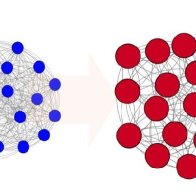
Article History

Royal Institution Christmas Lectures 2018 - Biology / Evolution - Alice Roberts and Aoife McLysaght
Via: Dig • Health, Science & Technology • 16 Comments • 4 Likes • 6 years ago
From Wikipedia: The Royal Institution Christmas Lectures are a series of lectures on a single topic each, which have been held at the Royal Institution in London each year since 1825, missing 1939–42 because of the Second World War. The lectures present scientific subjects to a general...

Sergei Prokofiev - Montagues and Capulets
Via: Dig • Entertainment • 7 Comments • 1 Like • 6 years ago
From the Wikipedia article: Montagues and Capulets, (Russian: Монтек и Капулетти) also known as Dance of the Knights, is a work of classical music written by Russian composer Sergei Prokofiev. The piece is the first one in the Suite No. 2 from Romeo and Juliet, Op. 64ter, which consists of...

The Darwin Day Lecture 2019, with Richard Dawkins
Via: Dig • Health, Science & Technology • 559 Comments • 11 Likes • 6 years ago
See also... Richard Dawkins awarded inaugural Humanists UK Darwin Day medal To celebrate Darwin Day on 12 February 2019, Humanists UK hosted its largest annual Darwin Day Lecture to date, given by evolutionary biologist Professor Richard Dawkins and chaired by evolutionary anthropologist...

InSight Is Catching Rays on Mars
Via: Dig • Health, Science & Technology • 5 Comments • 7 years ago
First clear view of Elysium Planitia: Image Credit: NASA/JPL-Caltech NASA's InSight has sent signals to Earth indicating that its solar panels are open and collecting sunlight on the Martian surface. NASA's Mars Odyssey orbiter relayed the signals, which were received on Earth at about...

A Grave Climate Warning, Buried on Black Friday
Via: Dig • Environment/Climate • 1 Comments • 7 years ago
“In a massive new report, federal scientists contradict President Trump and assert that climate change is an intensifying danger to the United...”
By Robinson Meyer at The Atlantic - November 23, 2018 Excerpts from the article: On Friday, the busiest shopping day of the year, the federal government published a massive and dire new report on climate change. The report warns, repeatedly and directly, that climate change could soon...

Something unbelievably freaky happened today -- The eerie, devastating coincidence that connects Redskins QBs Alex Smith and Joe Theismann
Via: Dig • Sports • 10 Comments • 7 years ago
Joe Theismann broke his right tibia and fibula on Nov. 18, 1985 in a game in Washington that ended 23-21. The only three-time Defensive Player of the Year Lawrence Taylor was involved in the injury, which occurred around the 40-yard line. Alex Smith broke his right tibia and fibula on Nov....

Social relationships more important than hard evidence in partisan politics: study
Via: Dig • Health, Science & Technology • 34 Comments • 7 years ago
“Partisan groupings evolve to become extreme, ultimately resulting in the formation of "echo chambers" in which political beliefs go unchallenged...”
The basic human need to get along with others results in the formation of extreme political groupings, according to a study from Dartmouth College. The findings, published in the journal Royal Society Open Science, add to the widening body of research on the behavior of social and political...

Megawatt-Class Lasers from Earth Could Attract Alien Astronomers, Says New Study
Via: Dig • Other • 11 Comments • 7 years ago
A new study, published in the Astrophysical Journal, suggests that if a 1- to 2-megawatt (MW) laser were focused through a 30- to 45-m telescope and aimed out into space, the combination would produce a beam of infrared radiation strong enough to stand out from the Sun’s energy and attract...

7.5 billion and counting: How many humans can the Earth support?
Via: Dig • Other • 298 Comments • 7 years ago
“When the last living thing has died on account of us, how poetical it would be if Earth could say, in a voice floating up perhaps from the floor of...”
7.5 billion and counting: How many humans can the Earth support? By Andrew D. Hwang Humans are the most populous large mammal on Earth today, and probably in all of geological history. This World Population Day, humans number in the vicinity of 7.5 to 7.6 billion individuals. Can the Earth...

